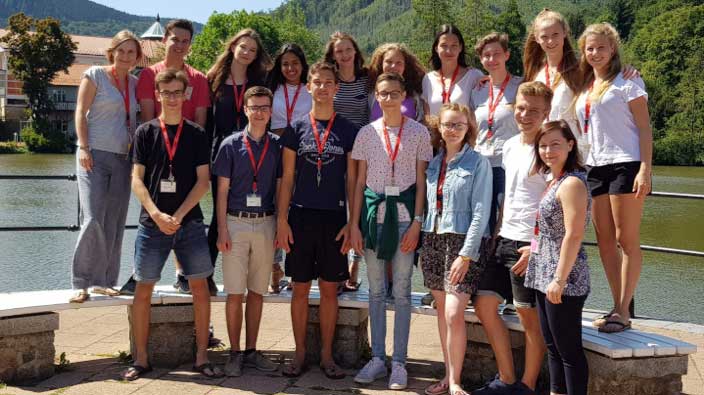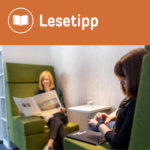“Humans and machine – an inseparable relationship” was the topic of a course organised by the Leibniz Researc Centre for Working Environment and Human Factors at the TU Dortmund (IfADo) as part of the German Student Academy in the summer of 2018. Young people have long been aware of the fact that in today’s world it is impossible to imagine life without machines for people and that machines determine the future of work and leisure – even if only in view of the messenger services on smartphones. “The interaction between humans and machines is not always smooth, intuitive and playful,” says Dr. Johanna Renker, research associate at IfADo, one of the institutions involved in the Center of Excellence Logistics and IT. Against this background, the students in the course led by the researcher worked out which psychological principles can be used to design user-friendly interfaces.
Each student presented a scientific study on a topic. Advantages and disadvantages of smart technologies were discussed and ethical principles discussed. Dr. Johanna Renker also explained the role of cognitive and motivational psychology, information processing, health psychology and ergonomics. In a practical project, the students took a closer look at a vacuum cleaner robot. They developed test scenarios and derived possibilities for improvement. In addition, the students were able to try out smart technologies such as a leap motion controller or a remote eye tracker. Dr. Johanna Renker: “In this way, contents from science could be transferred into society in a playful and reflective way”.
The German Pupils Academy is an extracurricular program for the promotion of particularly high-performing and motivated high school students.
Photo: Leibniz-Institut für Arbeitsforschung der TU Dortmund (IfADo)




